Minute of silence in memory of journalists who died in the resistance war - Photo: Organizing Committee
The political and artistic program Vietnam Revolutionary Press - 100 years of glory and responsibility was directed by Hanoi City and organized by Hanoi Radio and Television on the occasion of the 100th anniversary of Vietnam Revolutionary Press Day.
The event took place on the evening of June 19 at the Vietnam - Soviet Union Friendship Cultural Palace (Hanoi), and was broadcast live on channel H1, radio and digital platforms of Hanoi Radio and Television.
There is a statistic, perhaps still incomplete, about 512 journalists and martyrs who fell in the nation's wars to defend the country.
100 years of pride for journalists
The program depicts 100 glorious years of Vietnamese revolutionary journalism through four stages: birth, maturity, development and new era, including the capital's journalism.
Four years after Le Paria (The Miserable) - the mouthpiece of the Colonial Union in France founded by Nguyen Ai Quoc and a number of progressive activists in 1922, the first Vietnamese newspaper called Thanh Nien was also born on June 21, 1925.
In the article "Prohibition of Going Out" published in issue 63 of this newspaper, there is a passage: "The ancient suffering of the Annamese people was already extreme; no other country's people suffered as much.
Fellow countrymen! Freedom is a gift from God. Those who are not free would rather die. Wake up and break the cage that the West has locked up. Fellow countrymen!"
Thanh Nien is the voice of spiritual enlightenment, the trumpet call urging Vietnamese people to stand up together "to charge forward together, to seek the source of light".
After Thanh Nien , Vietnamese revolutionary press grew rapidly in both quantity and quality.
In addition to the newspapers that were active before 1945 such as Cuu Quoc Newspaper, Viet Nam Doc Lap, Co Giai Phong ..., many large press agencies were established such as: Voice of Vietnam Radio , National Assembly Newspaper, People's Army Newspaper, People's Newspaper...
During the resistance war and nation building, the Vietnamese revolutionary press became a sharp weapon of struggle on the political and ideological front, together with the whole country writing heroic pages of history and common victories of the nation.
During that journey, there are incomplete statistics, 512 journalists and martyrs fell in the nation's wars to defend the country.
Journalist Pham Viet Long shares - Screenshot
The touching story of journalist Duong Thi Xuan Quy
On stage, journalist Pham Viet Long - former Chief of Office of the Ministry of Culture and Information, who was in charge of the Liberation News Agency Subcommittee (1973-1975), shared that at this moment, he was moved and missed his fallen colleagues.
He talked about colleagues who "never returned": Ho Ca, Le Viet Vuong, Pham Thi De... Especially writer and journalist Duong Thi Xuan Quy.
In 1968, the battlefield in the South was very active. Journalists had to write volunteer applications to be allowed to enter the battlefield, including Xuan Quy.
"The Propaganda Department assigned her to Quang Ngai, but she volunteered to go to Quang Da - the "hottest" place at that time. She said the writer had to go to the most fierce areas to meet the most advanced and brave people," Mr. Long recounted.
Before leaving, Mr. Long, journalist Xuan Quy and poet Bui Minh Quoc (Mrs. Quy's husband) had a big party with only a can of rice porridge, MSG and salt given by poet Thu Bon.
Writer, journalist, martyr Duong Thi Xuan Quy - Photo archive
On the way to the war zone, Xuan Quy wrote the famous work Wildflowers . She died in Duy Xuyen on March 8, 1969 after a fierce sweep.
The day before, Bui Minh Quoc wrote the fateful poem Love Poem, which was later turned into the song Life is Still Beautiful by musician Phan Huynh Dieu.
A few months later, the poet continued writing the poem "Poem about happiness", with some lines that when read again are still warm and trembling: "You lie down again/ With the good land of Duy Xuyen/ On your grave, spring will remain forever/ The battlefield sky is still a pure green".
More than half a century has passed since that fateful day, but the story of martyr and journalist Duong Thi Xuan Quy still moves people.
She, like many other journalists and soldiers, carried the mission of "modern secretaries" with a patriotic heart, writing proud golden pages for the 100-year tradition of Vietnamese revolutionary journalism.
Vo Ha Tram sings about journalism - Photo: BTC
Go with the notes 'on the way'
In addition to documentary footage and character meetings, the program also features musical performances by artists Dang Duong, Duc Tuan, Vo Ha Tram, Dong Hung, Huong Tram, and the Oplus group.
On the symphonic background, the songs Len Dang, Tien Quan Ca, Du Kich Song Thao, Tien Ve Ha Noi, Mien Nam Tuyen Dau To Quoc, Buoc Chan Tren Dai Truong Son, Dat Nuoc Tron Niem Vui, Tinh Yeu Cua Bien, Dat Nuoc Tinh Yeu, Xin Chao Viet Nam, Tam Su Nguoi Lam Bao, Mot Lap Viet Nam... recreate the journey of a century of Vietnamese revolutionary journalism full of pride and honor but still with many concerns.
Dong Hung sings Len Dang - Photo: BTC
In particular, the program resounded with familiar radio jingles, including a jingle that was a call to action: " This is the Voice of Vietnam, broadcasting from Hanoi, capital of the Democratic Republic of Vietnam."
The jingles revive unforgettable memories through familiar melodies and sounds through Vietnamese radio waves.
See more pictures:
The program combines political and artistic elements - Photo: Organizing Committee
Singer Duc Tuan - Photo: Organizing Committee
Marching to Hanoi resounds - Photo: Organizing Committee
Performance One Round of Vietnam - Photo: Organizing Committee
BEANS
Source: https://tuoitre.vn/hon-nua-the-ki-chuyen-nha-bao-duong-thi-xuan-quy-hi-sinh-van-gay-xuc-dong-manh-20250620070208641.htm


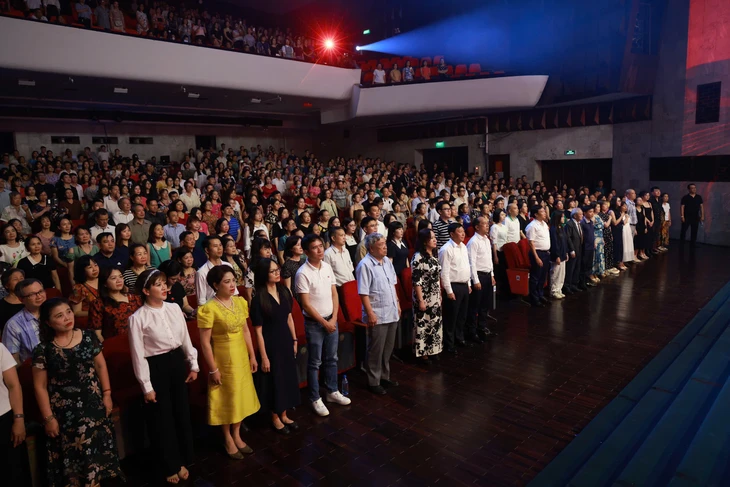

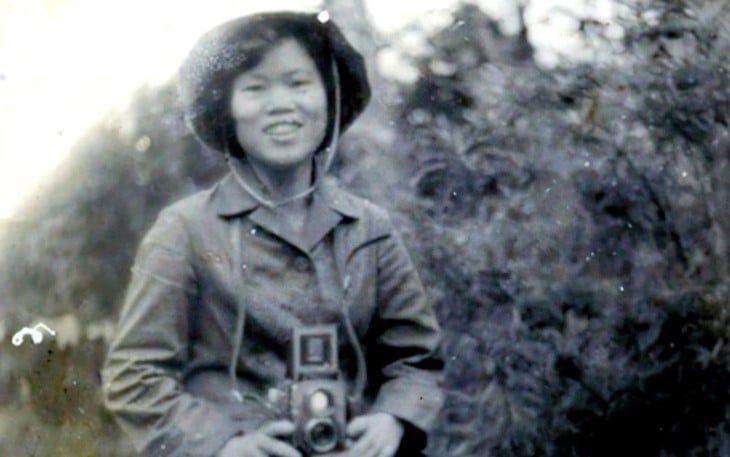


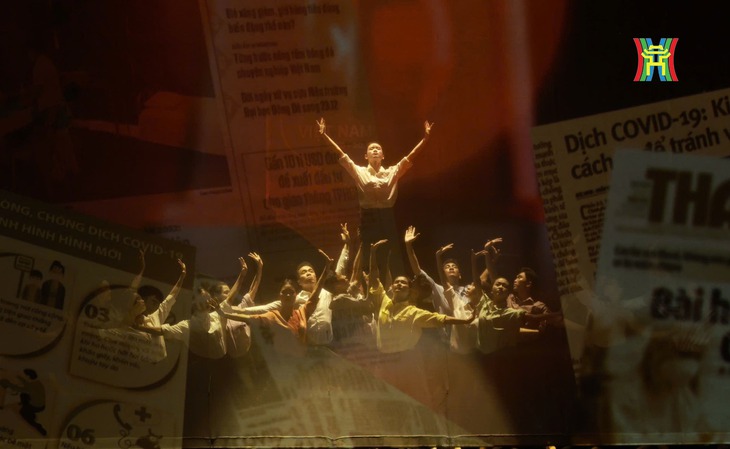
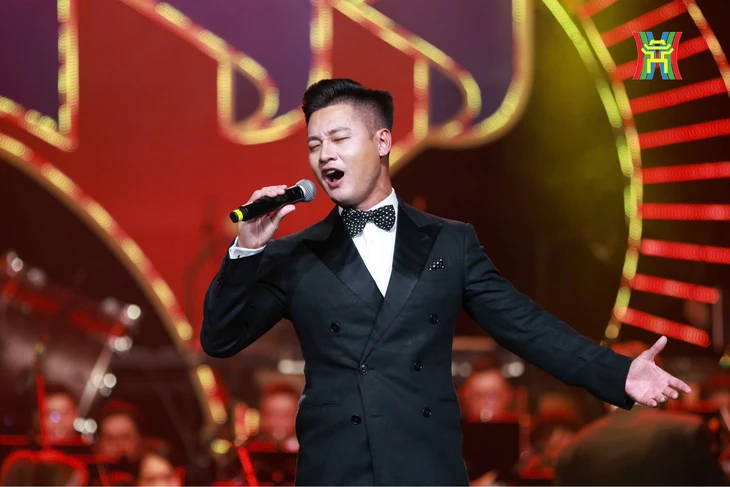





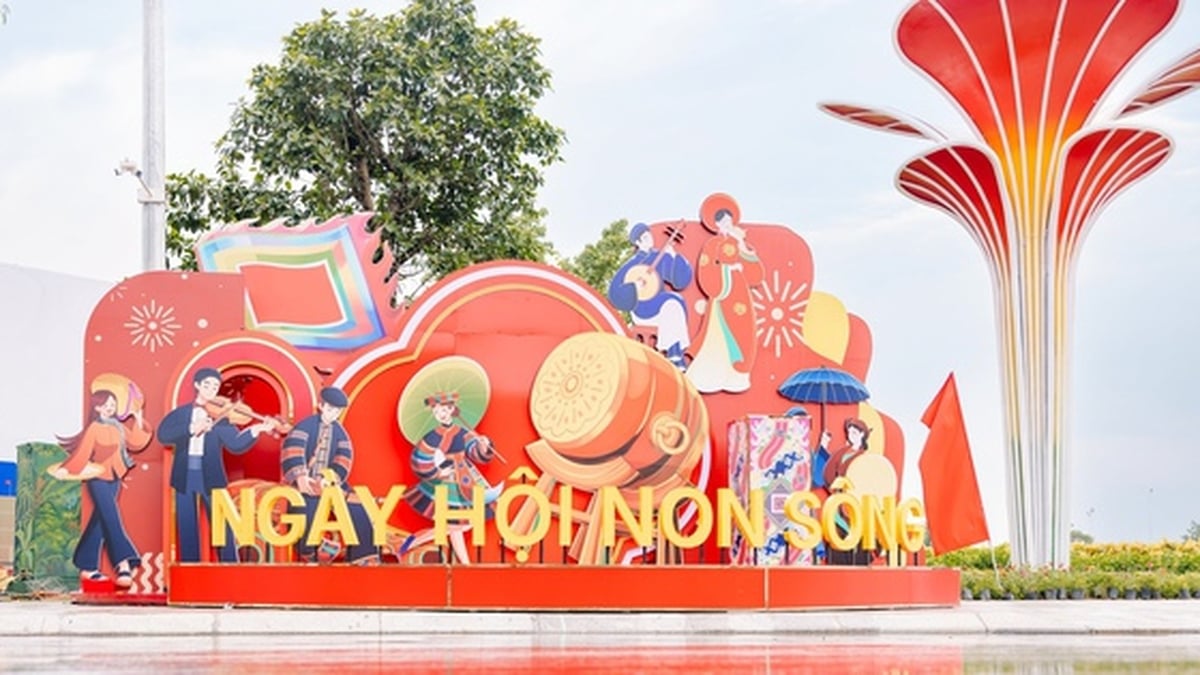

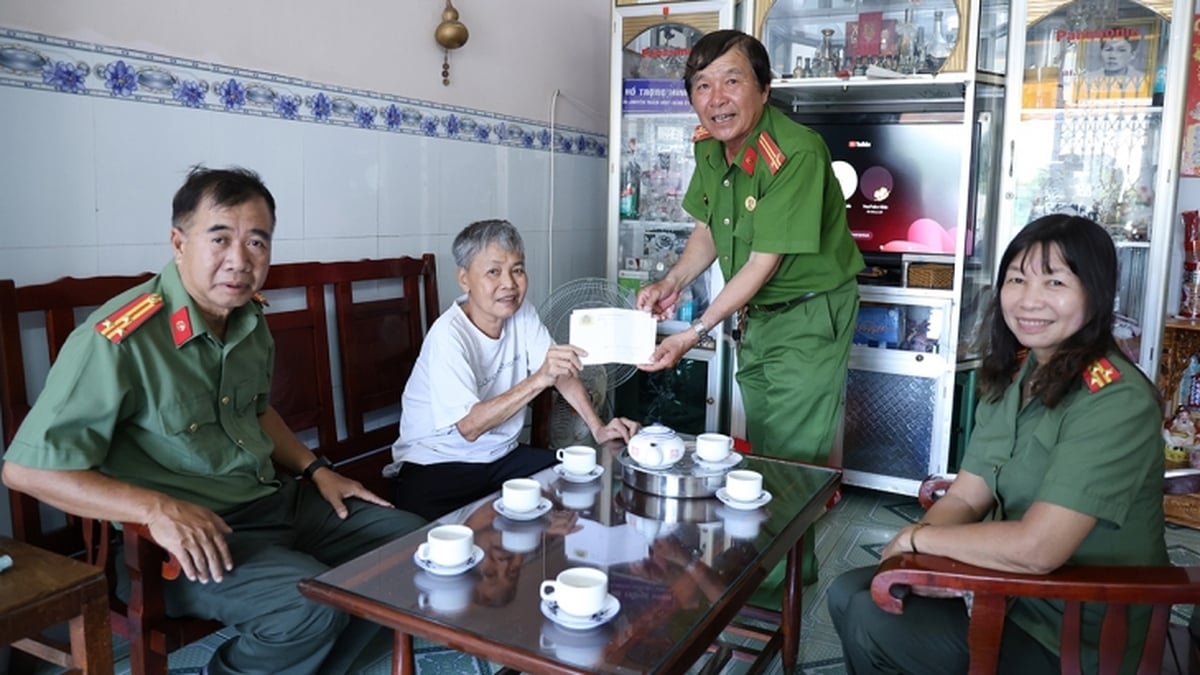

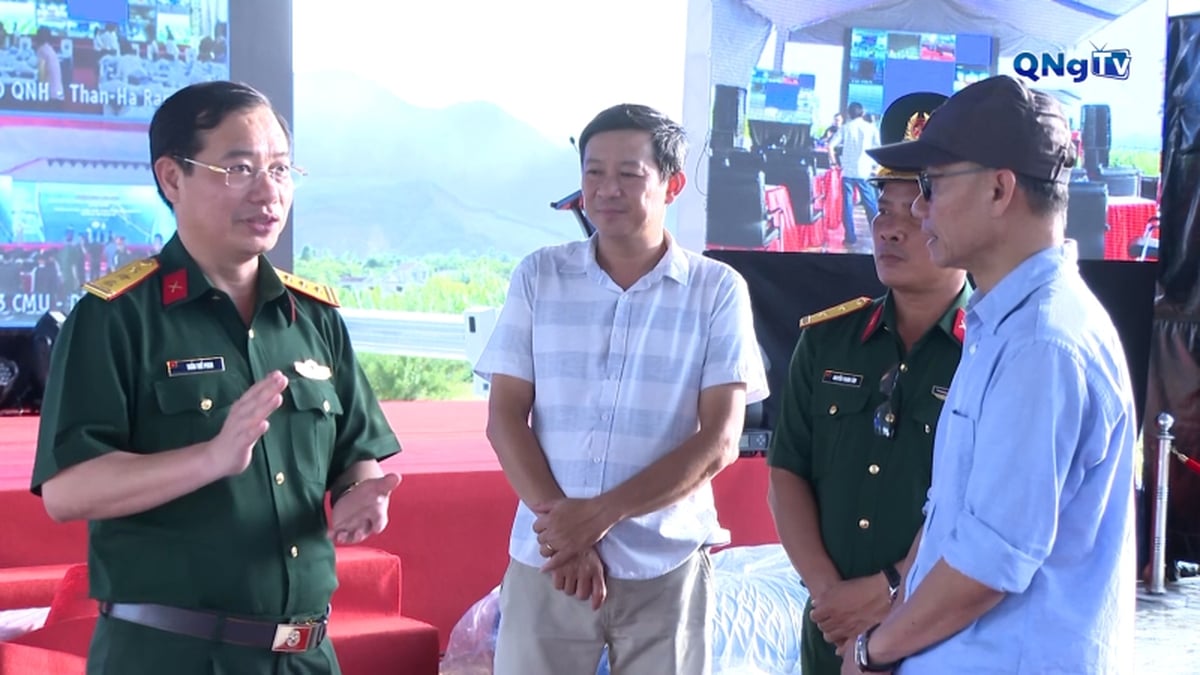












![[Photo] General Secretary To Lam and President Luong Cuong attend the handover ceremony of the Presidential Office Headquarters](https://vphoto.vietnam.vn/thumb/1200x675/vietnam/resource/IMAGE/2025/8/19/a37cfcbd301e491990dec9b99eda1c99)
![[Photo] President Luong Cuong's wife and Queen of Bhutan visit Tran Quoc Pagoda](https://vphoto.vietnam.vn/thumb/1200x675/vietnam/resource/IMAGE/2025/8/19/62696af3852a44c8823ec52b03c3beb0)
![[Photo] General Secretary and Prime Minister visit the National Exhibition and Fair Center](https://vphoto.vietnam.vn/thumb/1200x675/vietnam/resource/IMAGE/2025/8/19/f4503ad032d24a90beb39eb71c2a583f)
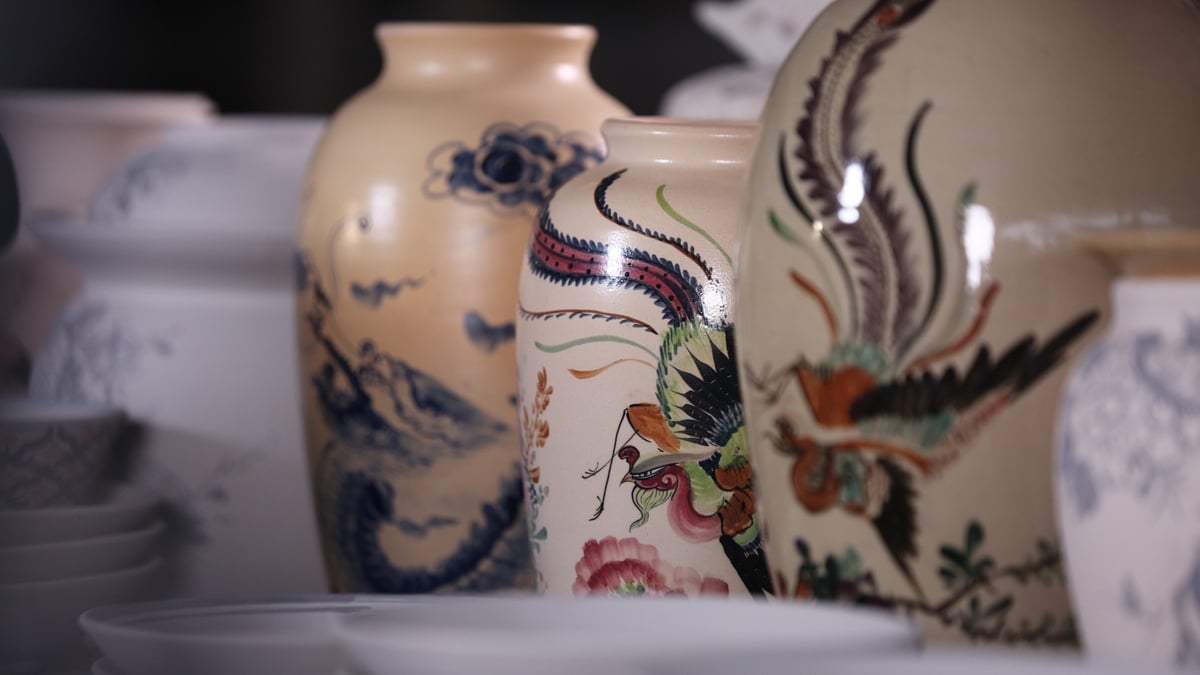

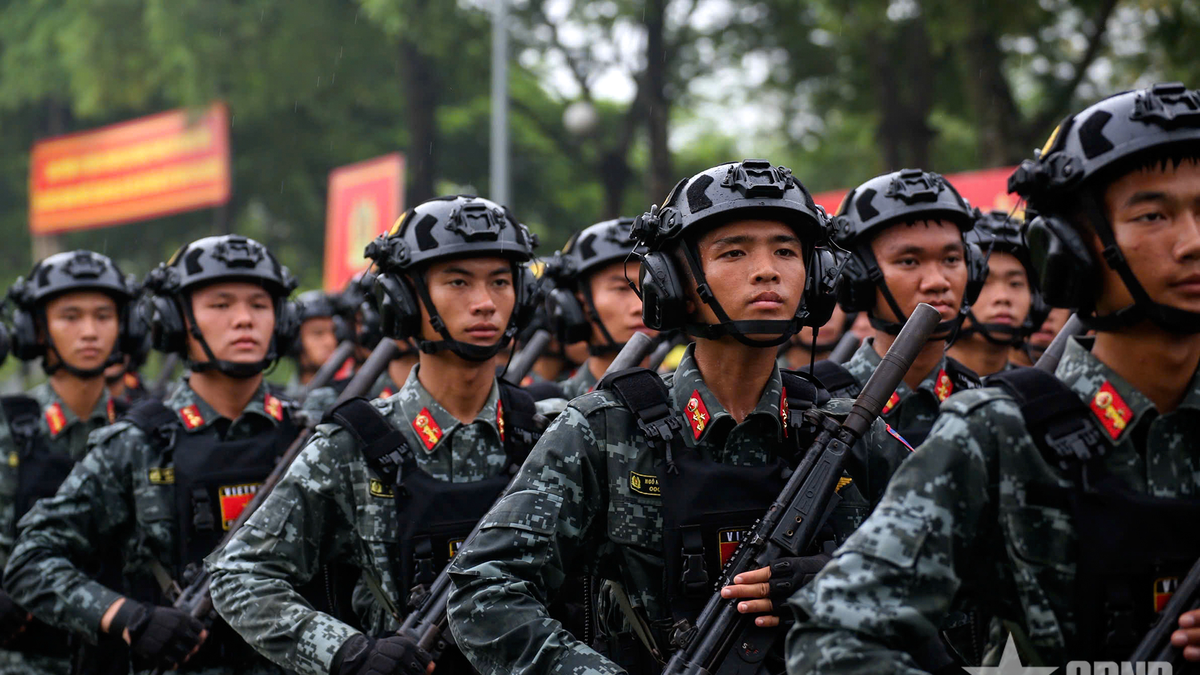
![[Photo] Close-up of the first International Financial Center building in Ho Chi Minh City](https://vphoto.vietnam.vn/thumb/1200x675/vietnam/resource/IMAGE/2025/8/19/3f06082e1b534742a13b7029b76c69b6)
![[Photo] General Secretary To Lam attends the inauguration and groundbreaking ceremony of 250 projects to celebrate National Day](https://vphoto.vietnam.vn/thumb/1200x675/vietnam/resource/IMAGE/2025/8/19/3aa7478438a8470e9c63f4951a16248b)








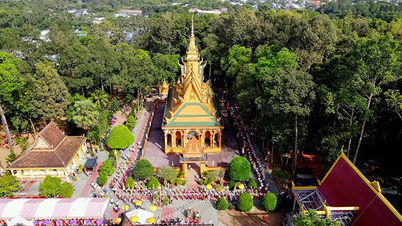

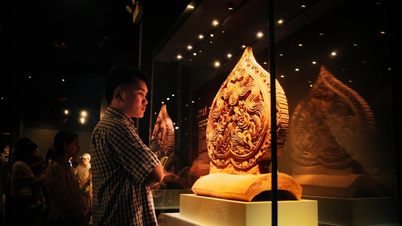



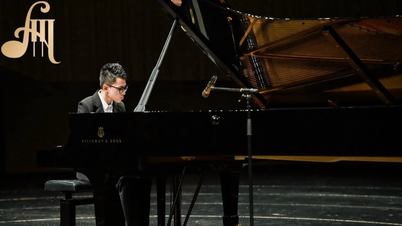
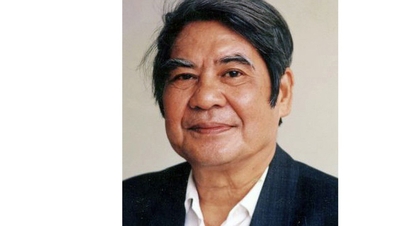

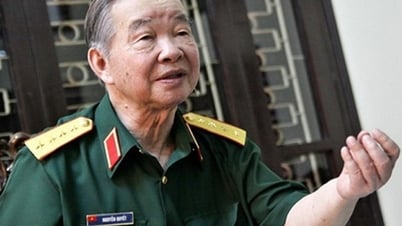

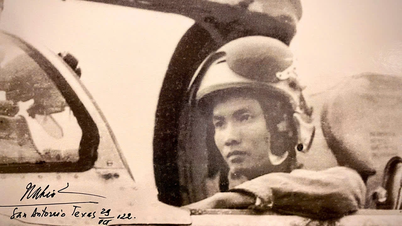













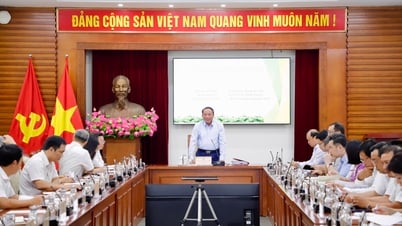
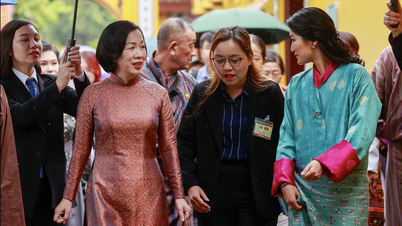

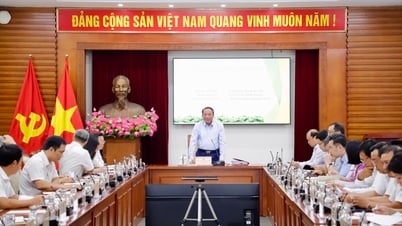


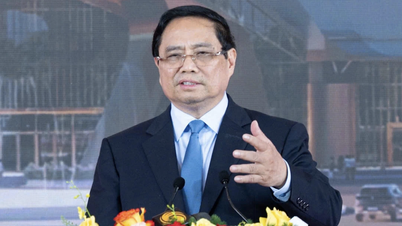
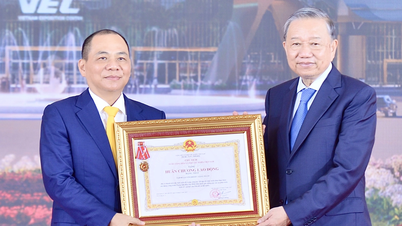

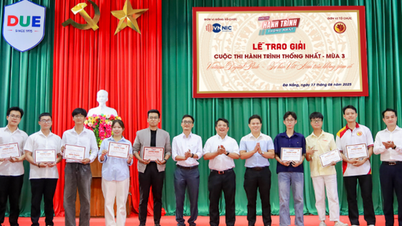

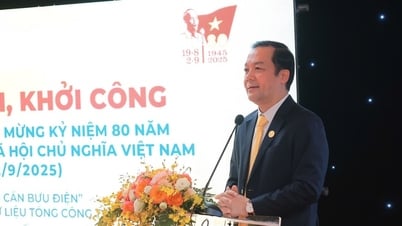

















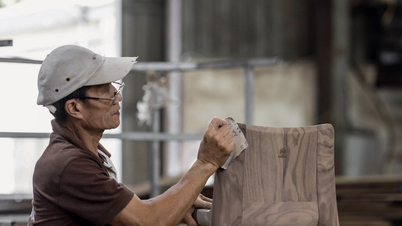
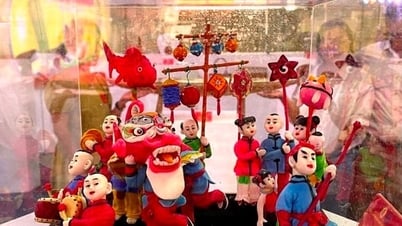






Comment (0)